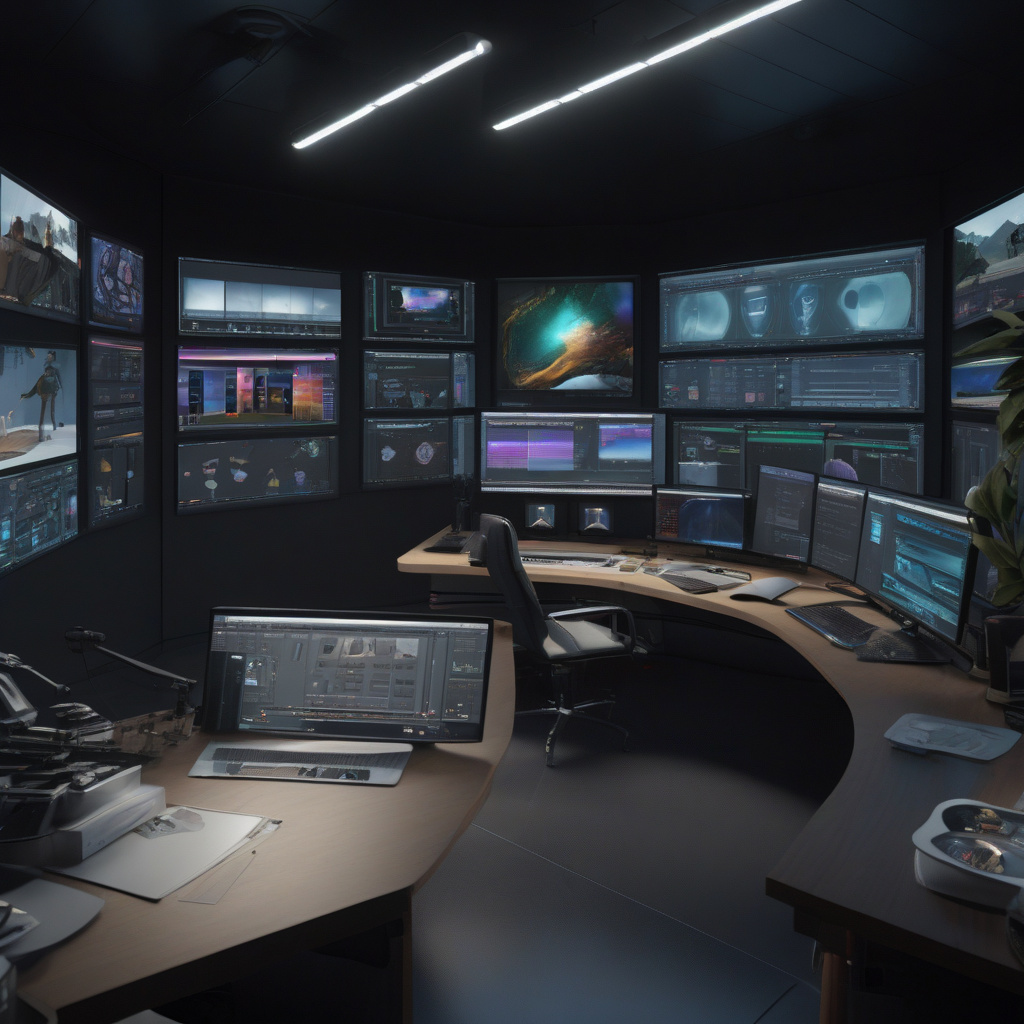Runway Revolutionizes AI Filmmaking with Gen-4: A Glimpse into the Future of Video Production
Runway, a trailblazer in the realm of AI filmmaking, is set to shake up the industry once again with the introduction of Gen-4. This latest advancement, backed by tech giants Google and Nvidia, promises to push the boundaries of what is possible in video production. However, despite the excitement surrounding this development, legal battles and concerns over potential job losses within the industry loom large, casting a shadow over the future of AI video tools.
The collaboration between Runway, Google, and Nvidia represents a significant step forward in the world of artificial intelligence and filmmaking. Gen-4 is poised to offer creators a host of new capabilities, from enhanced visual effects to streamlined editing processes. By leveraging the power of AI, filmmakers will be able to bring their creative visions to life in ways that were previously unimaginable.
One of the key features of Gen-4 is its ability to generate ultra-realistic visuals with unprecedented speed and accuracy. By harnessing the computational power of Nvidia’s hardware and the sophisticated algorithms developed by Google, Runway has created a tool that can revolutionize the way films are made. From complex CGI sequences to lifelike character animations, Gen-4 opens up a world of possibilities for filmmakers looking to push the boundaries of visual storytelling.
Despite the undeniable potential of Gen-4, the road ahead is not without its challenges. Legal battles surrounding the use of AI in creative industries have raised questions about intellectual property rights and the ethical implications of using machine-generated content. As AI continues to blur the line between human and machine creativity, industry stakeholders must grapple with thorny issues related to copyright, authorship, and artistic integrity.
Moreover, the rise of AI video tools like Gen-4 has sparked concerns about the future of employment in the industry. As automation becomes increasingly prevalent in creative fields, there is a growing fear that AI technologies could lead to widespread job losses among traditional video production professionals. While AI tools undoubtedly offer unparalleled efficiency and cost-effectiveness, the human touch and creative intuition that filmmakers bring to their craft cannot be replicated by machines.
In the face of these challenges, industry leaders must tread carefully to ensure that the benefits of AI technology are balanced with ethical considerations and human-centric values. By fostering a collaborative dialogue between technology developers, content creators, and legal experts, it is possible to chart a path forward that maximizes the potential of AI video tools while safeguarding the rights and livelihoods of industry professionals.
As Runway prepares to unleash Gen-4 onto the market, the world of AI filmmaking stands on the cusp of a new era. By harnessing the combined expertise of Google and Nvidia, Runway has the opportunity to reshape the landscape of video production and set new standards for creative excellence. However, the true test lies in how the industry navigates the complex legal and ethical challenges that accompany this technological revolution.
In the end, the future of AI video tools like Gen-4 rests in the hands of those who wield them. By approaching these powerful technologies with a sense of responsibility and foresight, filmmakers can harness the full potential of AI to elevate their craft and inspire audiences around the world.
#AI, #Filmmaking, #Runway, #Gen4, #VideoProduction
